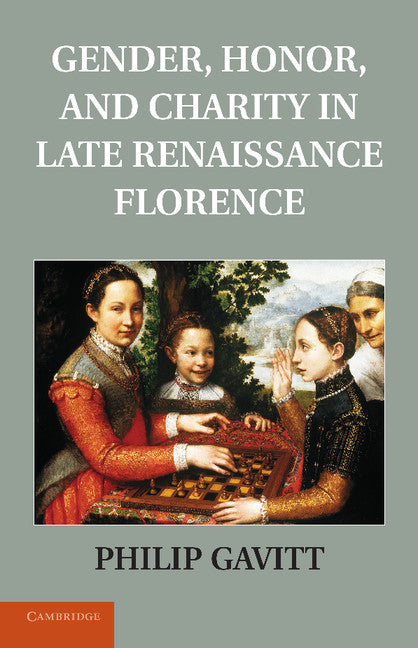Freshly Printed - allow 6 days lead
Couldn't load pickup availability
Gender, Honor, and Charity in Late Renaissance Florence
This book examines the important social role of charitable institutions for women and children in late Renaissance Florence.
Philip Gavitt (Author)
9781107690875, Cambridge University Press
Paperback / softback, published 31 October 2013
292 pages, 9 tables
22.9 x 15.2 x 1.7 cm, 0.43 kg
'Gavitt provides stimulating insight into crucial issues that although long debated in the historiography of Renaissance Florence have been only sporadically addressed for the history of the city in the sixteenth century.' The American Historical Review
This book examines the important social role of charitable institutions for women and children in late Renaissance Florence. Wars, social unrest, disease and growing economic inequality on the Italian peninsula displaced hundreds of thousands of families during this period. In order to handle the social crises generated by war, competition for social position and the abandonment of children, a series of private and public initiatives expanded existing charitable institutions and founded new ones. Philip Gavitt's research reveals the important role played by lineage ideology among Florence's elites in the use and manipulation of these charitable institutions in the often futile pursuit of economic and social stability. Considering families of all social levels, he argues that the pursuit of family wealth and prestige often worked at cross-purposes with the survival of the very families it was supposed to preserve.
Introduction
1. Charity and state-building
2. Gender, lineage ideology, and the development of a status culture
3. Law and the majesty of practice
4. Innocence and danger: pedagogy, discipline, and the culture of masculinity
5. From putte to puttane: female foundlings and charitable institutions
6. Unruly nuns: convents and cloistering
Conclusion.
Subject Areas: Gender studies: women [JFSJ1], Early modern history: c 1450/1500 to c 1700 [HBLH], European history [HBJD]


